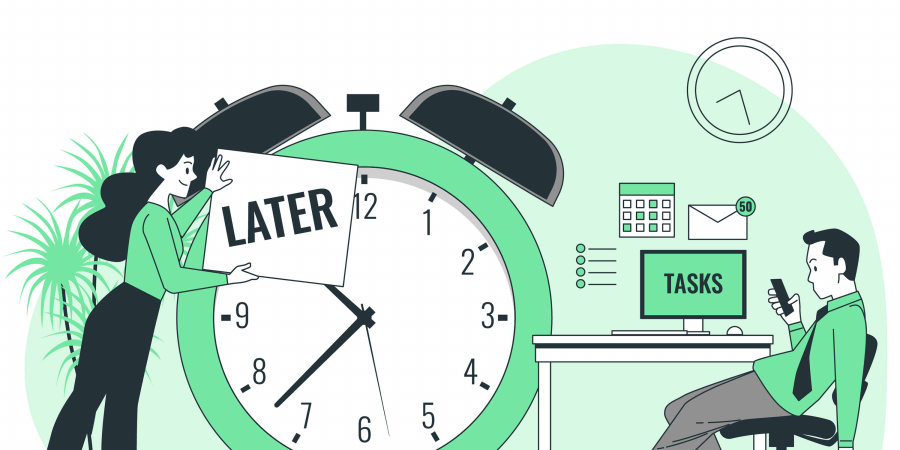

The persistent enemy of productivity is procrastination. At some point in our lives, we've all fallen prey to the temptation of putting off chores until the very last minute. However, there is a complicated interaction of behavioral, neurological, and psychological elements behind this seemingly harmless practice. Gaining control over our time and productivity and escaping the hold of procrastination requires first understanding the science behind it.
Fundamentally, procrastination is a failure of self-control. It happens when we fall into the temptation of immediate satisfaction or comfort from discomfort, choosing short-term objectives above long-term objectives. The brain's reward system is the source of this phenomenon, as tasks linked to instant rewards cause the "feel-good" neurotransmitter dopamine to be released, which in turn promotes procrastinating behavior.
Moreover, perfectionism or a fear of failing are common causes of procrastination. We may feel anxious and uncomfortable when faced with difficult chores or high expectations, which makes us avoid or put off taking action completely. Although this avoidance behavior temporarily eases discomfort, in the long run, it feeds the cycle of procrastination and undermines our self-worth and confidence.
Moreover, the procrastination problem is made worse by modern technology. Our attention spans are constantly being divided by the constant availability of distractions like social media, streaming services, and online games, which makes it harder and harder to concentrate on crucial work. These digital diversions contain dopamine-driven feedback loops that take over our brains' reward pathways and reinforce our procrastinating habits.
Overcoming procrastination is not an impossible task, though. Through the application of scientifically supported techniques derived from psychology and behavioral science, we can overcome our inclination to put things off and develop robust and productive habits.
One such tactic is "chunking," or dividing a work into smaller, more manageable chunks. We may make intimidating jobs seem less overwhelming and complex. Segmenting them into manageable chunks, makes them easier to tackle and more feasible.
Furthermore, utilizing implementation intents' power might aid in bridging the gap between intention and action. We may reduce decision fatigue and boost the possibility of follow-through by creating a detailed plan of action that clearly outlines the when, where, and how of each activity.
In addition, developing a growth mentality and engaging in self-compassionate practices are crucial to beating procrastination. Rather than criticizing ourselves for past procrastination, we might decide to see failures as chances for personal development and education. By developing a self-compassionate and resilient mindset, we enable ourselves to tackle challenges head-on and conquer procrastination with calm and courage.
Procrastination, is a problem that affects everyone to varied degrees. But if we have a better grasp of the underlying causes of procrastination and evidence-based intervention techniques at our disposal, we may overcome its hold and reach our greatest potential for success and productivity.
